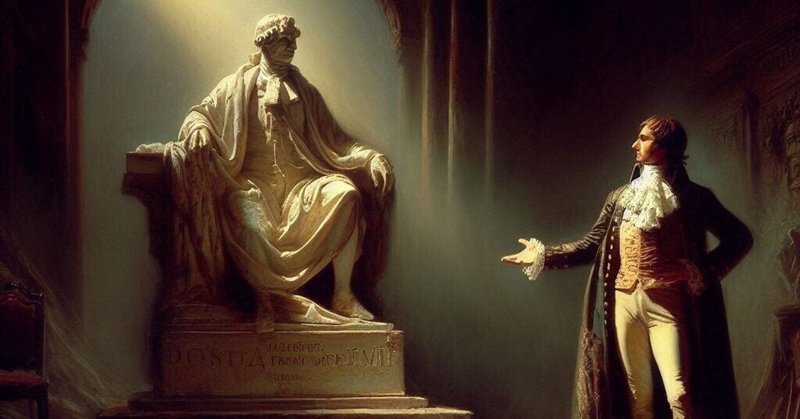
フルトヴェングラーの到達した晩年の境地、完成されたモーツァルトの世界、オペラ『ドン・ジョヴァンニ』
こんにちは、音楽評論家の和田大貴です。今回は、フルトヴェングラー指揮によるモーツァルトのオペラ「ドン・ジョヴァンニ」の名演について紹介したいと思います。
「ドン・ジョヴァンニ」とは、モーツァルトが1787年に作曲したオペラで、イタリアの劇作家ロレンツォ・ダ・ポンテが台本を書きました。主人公は、スペインの貴族でありながら、女性を次々と口説き落とし、裏切り、殺害するという悪名高いドン・ジョヴァンニです。彼は、自分の行為に対して罪悪感や後悔を感じることなく、快楽を追い求め続けます。しかし、彼の運命は、ある日殺害した老騎士の石像が彼を訪ねてきたことから一変します。石像は、ドン・ジョヴァンニに改心するように勧めますが、彼は拒絶します。すると、石像は彼を地獄へと引きずり込んでしまいます。
この演奏は、1954年にザルツブルク音楽祭で行われたもので、録音も非常に優秀です。フルトヴェングラーのディスクの中でも特に優れたものとして高く評価されています。
フルトヴェングラーは、モーツァルトのオペラをレコーディングしたのはこの「ドン・ジョヴァンニ」と「魔笛」だけですが、どちらも素晴らしい出来栄えです。特に「ドン・ジョヴァンニ」は、「K466」と並んで彼のモーツァルト解釈の最高傑作と言えるでしょう。
この演奏の特徴は、全体に遅めのテンポで一貫していることです。しかし、それが重苦しくならず、逆に音楽の格調と透明感を高めています。フルトヴェングラーは、音楽に身を投じてドラマティックに盛り上げるよりも、客観的な視点で全体を見渡しています。それが、しらけた感じや退屈さを与えず、聴き手は安心して「ドン・ジョヴァンニ」の世界を楽しめます。
ウィーン・フィルも、繊細で優雅な音色で歌手たちを支えています。オーケストラは常に厚みのある音で歌を引き立てていますが、大味になったり圧迫したりすることはありません。スケールも大きく、華やかさもありますが、派手さや浮つきさもありません。
「序曲」は、冒頭の低弦のクレッシェンドが非常に迫力がありますが、主部に入るとアンサンブルが見事で、格調高く透明な解釈となります。テンポは普通ですが、幕が開くとどの部分もかなり遅めです。「ぶってよ、マゼット」などはその典型で、人によっては好みが分かれるかもしれませんが、私は全く違和感を感じませんでした。むしろ、そのテンポのおかげで落ち着いて音楽を味わえると思います。
第一幕の終結や第二幕の石像の登場やドン・ジョヴァンニとのやりとり、そして地獄堕ちの場面なども、フルトヴェングラーとしては非常に控えめです。夢中になりすぎたり狂気じみたりせず、しかも緊張感は十分です。燃え上がったフルトヴェングラーを期待する人には物足りないかもしれませんが、これこそ彼が到達した晩年の境地であり、完成されたモーツァルトの世界だと思います。
歌手陣も素晴らしいです。チェザーレ・シエピのタイトルロールのドン・ジョヴァンニは押しも押されもしない、ドン中のドン、文句のつけようがありません。
シエピは、ドン・ジョヴァンニ像を作り上げた男です。
彼の雄姿を見たさに、劇場に足を運ぶ人(主に女性)が多くなった、という話を聞いたことがあります。
風格のあるシュヴァルツコップと可憐なベルガーに惹かれます。どの歌手も感情を込めていますが、歌い崩すことはありません。モーツァルトのオペラの場合、これは非常に重要なことです。
この演奏は、モーツァルトのオペラの名演の一つとして、ぜひ聴いていただきたいものです。以下のリンクから視聴できます。
コメント
フンメル 2009年11月07日 23:33
ども。
ドン・ジョヴァンニは、いまだにこの盤と、カール・ベームのウイーンフィルのライヴ盤(ミルンズ主演の新しい方)が僕のベストです。
このオペラだけは「エロ」と「デモーニッシュ」を極端に演出してほしいのです。
その点で、フルトヴェングラー盤、大好きです。
2. 和田 2009年11月08日 10:21
フンメルさん、コメントありがとうございます。
フルトヴェングラーの演奏はテンポは遅く、歌手たちの声質もブッファ的な軽快さやギャラントな小味さよりもドラマティックな性格なために音楽はドラマティックな深淵に向かって没入していきます。
かといって重苦しくなりすぎず、パセティックな緊張の中にも一種の透明さを湛えています。
このオペラの十全な姿ではありませんが、一つの最も徹底的な表現とはいえるでしょう。

The state reached by Furtwängler in his later years, the completed world of Mozart, and the opera "Don Giovanni"
Hello, I'm Daiki Wada, a music critic. This time, I would like to introduce the famous performance of Mozart's opera "Don Giovanni" conducted by Furtwängler.
``Don Giovanni'' is an opera composed by Mozart in 1787, with a libretto by Italian playwright Lorenzo da Ponte. The main character is Don Giovanni, a Spanish aristocrat who is notorious for seducing, betraying, and murdering women one after another. He continues to pursue his pleasure without feeling any guilt or remorse for his actions. However, his fate changes one day when he is visited by a stone statue of the old knight he had murdered. The statue invites Don Giovanni to reform, but he refuses. The statue then drags him to hell.
This performance was given at the Salzburg Festival in 1954, and the recording is also very good. It is highly regarded as one of Furtwängler's finest discs.
Furtwängler recorded only ``Don Giovanni'' and ``The Magic Flute'' from Mozart's operas, but both are wonderful results. In particular, ``Don Giovanni'', along with ``K466'', can be said to be his masterpiece of Mozart interpretation.
This performance is characterized by a consistently slow tempo throughout. However, it does not become heavy, and on the contrary, it enhances the dignity and clarity of the music. Furtwängler looks at the whole thing from an objective point of view, rather than throwing himself into the music to make it more dramatic. This allows the listener to enjoy the world of Don Giovanni with peace of mind, without giving it a dull or boring feel.
The Vienna Philharmonic also supports the singers with its delicate and elegant tones. The orchestra always enhances the songs with a rich sound, but never overpowers or overpowers them. The scale is large and there is some glamor, but it is not flashy or extravagant.
``Overture'' has a very powerful crescendo in the low strings at the beginning, but when the main part begins, the ensemble is splendid, resulting in a sophisticated and transparent interpretation. The tempo is normal, but once the curtain opens, every part is quite slow. A typical example is something like ``Beat me, Mazet'', and while some people may have different tastes, I didn't feel any discomfort at all. In fact, I think the tempo allows you to relax and enjoy the music.
The end of the first act, the appearance of the stone statue in the second act, the interaction with Don Giovanni, and the scene of the descent into hell are all very restrained by Furtwängler. It doesn't get too crazy or crazy, yet it's tense enough. It may be unsatisfying for those expecting Furtwängler to be on fire, but I think this is the state he reached in his later years, and the world of Mozart that has been completed.
The singers are also wonderful. Cesare Siepi's Don Giovanni, the title role, is a Don Giovanni who is not pushed or pushed, and there is nothing to complain about.
Siepi is the man who created the statue of Don Giovanni.
I once heard that many people (mainly women) started going to theaters to see his heroic side.
I am drawn to the stately Schwarzkopf and the pretty Berger. All the singers put a lot of emotion into their songs, but they never let their songs break. In the case of Mozart's operas, this is very important.
This performance is one of the great performances of Mozart's operas and is something you should definitely listen to.
comment
Hummel November 7, 2009 23:33
Hey there.
For Don Giovanni, this version and the live version of Karl Böhm's Vienna Philharmonic (the new one starring Milnes) are still my best.
I would like this opera to take the ``erotic'' and ``dämonisch'' elements to the extreme.
In that respect, I love the Furtwängler record.
2. Wada November 8, 2009 10:21
Thank you for your comment, Mr. Hummel.
The tempo of Furtwängler's performance is slow, and the singers' voices are more dramatic than the buffa-like lightness or gallant undertones, so the music immerses itself into a dramatic abyss.
However, it is not too heavy, and there is a kind of transparency in the pathetic tension.
Although it is not a complete representation of this opera, it can be said to be one of the most thorough expressions.

よろしければサポートお願いします! いただいたサポートはクリエイターとしての活動費に使わせていただきます!
